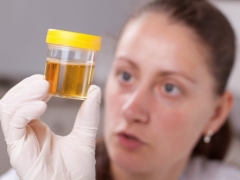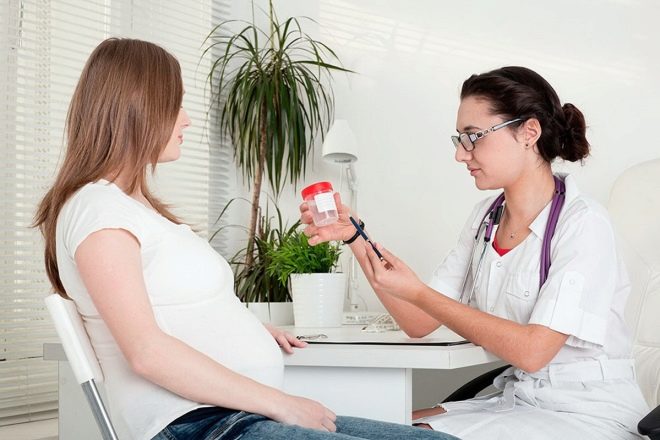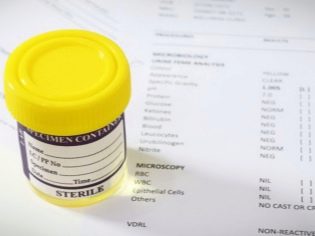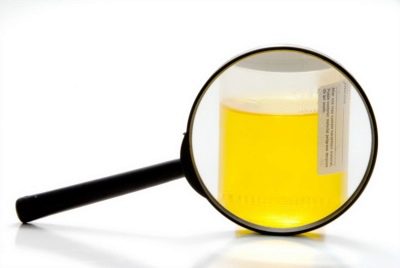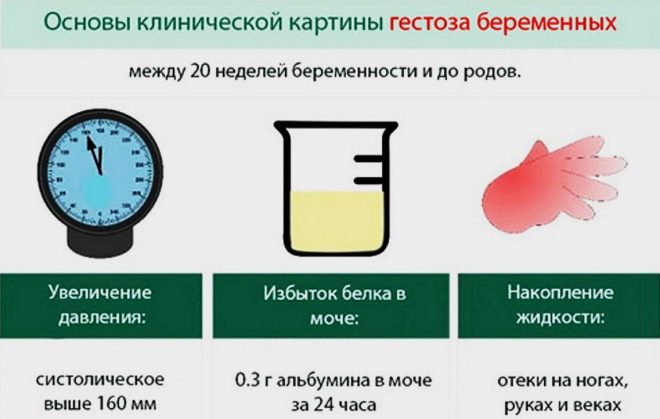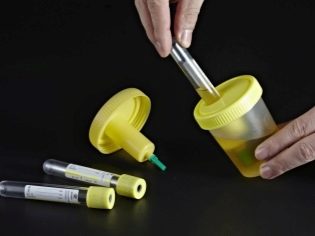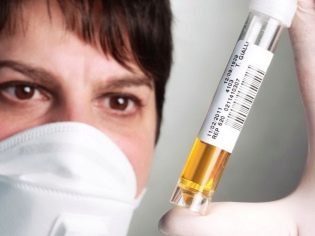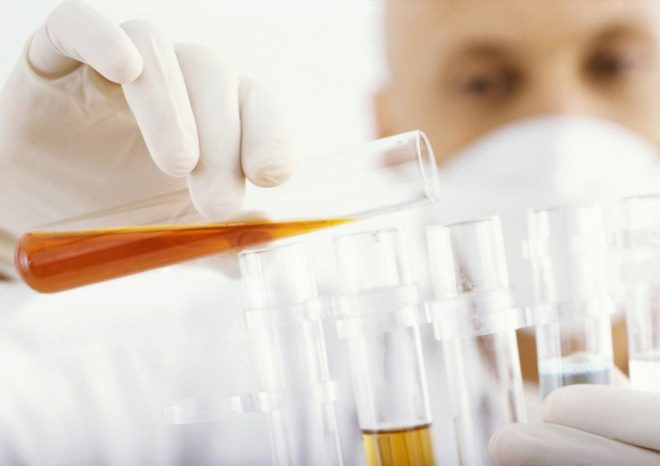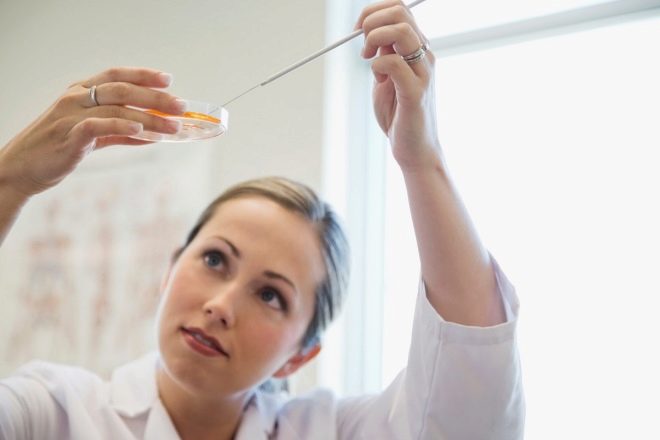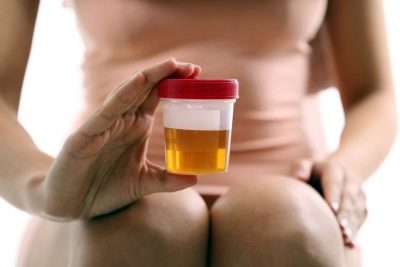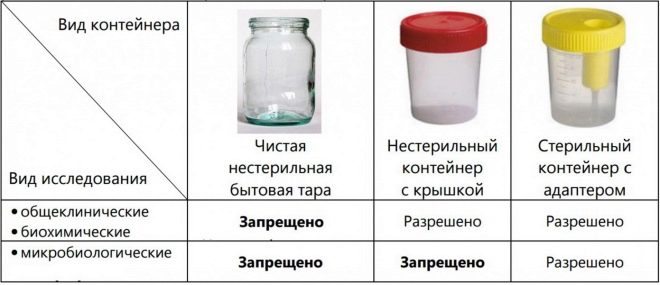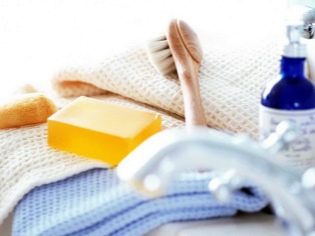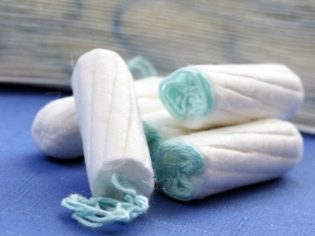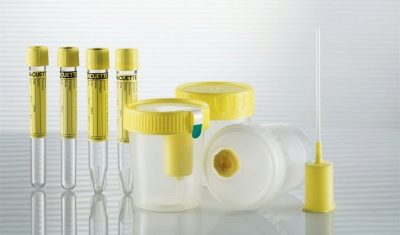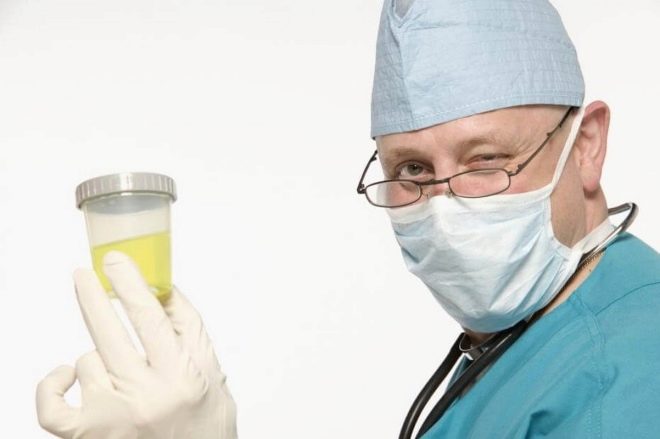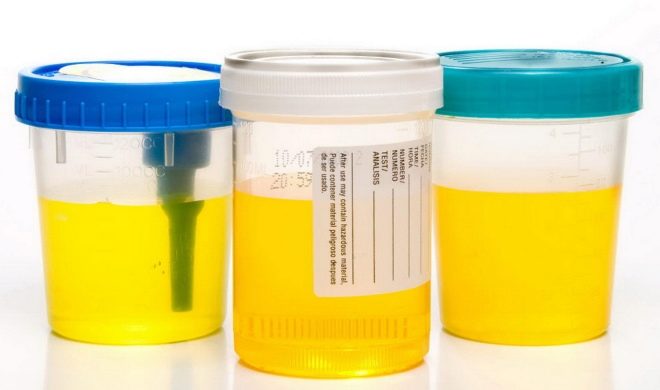Terms of delivery of urine analysis during pregnancy
Urine tests help doctors find out about the first signs of abnormalities in future mothers. Throughout pregnancy, women are assigned several such studies. This article will tell future moms about how to properly prepare and pass urine tests.
Types of research
Currently, there are many different types of urine tests. Mommies who carry babies under the heart undergo quite a lot of different laboratory tests. They are necessary in order to timely identify various pathologies in future babies.
General urine analysis - This is a basic study that is assigned to all pregnant women.. This test will show how the kidneys work and the outflow of biological fluid through the urinary tract. In this case, a number of key indicators are evaluated. These include: specific gravity or density, urinary sediment, and pH. Comprehensive assessment of these indicators allows doctors to identify various pathologies of the course of pregnancy that may occur at various stages of pregnancy.
The study of urine protein helps doctors to identify pathologies in the work of the kidneys, and other related diseases of the internal organs. Many cardiovascular diseases occur with changes in the main urinary indicators, including the appearance of protein. In case of mild pathology, traces of protein are found in the urinary sediment. Severe diseases can cause proteinuria - massive loss of protein in the urine.
Quite often, the appearance of such a sign is manifested in women with signs preeclampsia. Typically, these clinical symptoms occur during third trimester. In some cases, preeclampsia can occur at 20-22 weeks of pregnancy. The appearance of protein in the discharge fluid is a very important reason for an unscheduled treatment to the gynecologist.
If a pregnant woman becomes severely swollen, then in this case it is required to collect daily urine for analysis. In this situation, certain toxic substances accumulate in the separated biological fluid, which show how different metabolic processes are disturbed in the female body.
The collection of urine per day allows you to identify many hidden pathologies of the kidneys.
Going daily analysis strictly on time. All indications, when urination was recorded in a special form. The collection of separated liquid is held in a special container. Its volume is 2.5-2.7 liters. In appearance, it is somewhat reminiscent of a jug with a wide neck and a raised handle.
This form of container given by chance. It provides convenience for collecting biological fluid for research. After each filling of such a container, doctors recommend carefully screwing the lid on. This will prevent the ingress of various microbes from the air.
Storage of urine collected by the daily method is carried out only in the refrigerator. Low temperatures are necessary for the result of the study to be reliable. In this case, it is very important to prevent the freezing of biological material.
Many future moms make a mistake by bringing the entire daily volume of collected urine to the laboratory. This is not required. To perform a clinical analysis, it is enough to pour about 80-100 ml of collected liquid into a smaller container. At the same time during the analysis Be sure to tell the technician what the total daily volume of fluid collected was.
Zimnitsky study appointed to all expectant mothers suffering from chronic glomerulonephritis or pyelonephritis. In this case, the analysis calculates the form elements - leukocytes and red blood cells. This study is usually assigned to conduct when the pregnant woman is kept in the hospital. In this case, this study is much easier.
The analysis of this analysis is carried out in eight separate containers. They should be collected every three hours. Many pregnant women note that collecting such an analysis was rather difficult for them, as they did not always want to urinate at a certain time for this. The first collected portion of the liquid must be removed.
All collected urine is further mixed and sent to the laboratory in a separate container, specially prepared for this.
Urinalysis for sterility - quite rare laboratory testused to diagnose kidney disease caused by various microorganisms. Such studies are usually prescribed by nephrologists. The determination of pathogenic microbes in the urine requires the mandatory appointment of appropriate therapy.
How to prepare for the collection?
Every future mom should know how to properly collect and pass a urine test. Violation of personal hygiene rules often leads to the fact that the results of urine tests become incorrect.
Typically, these effects are manifested by an increase in the number of leukocytes in the urine. This condition is called leukocyturia. It is found in many pathologies, but it can also appear if the rules for collecting material for research have been violated. In such a situation, leukocytes enter the urine from the vagina and vulva, and not from the urinary tract.
Before submitting this analysis You can not eat beets and other brightly colored foods. They can stain the urinary sediment in red or orange. This will help to ensure that the result of the analysis will be interpreted by experts incorrectly. If, nevertheless, a pregnant woman has eaten beets or strawberries on the eve of taking a urine test, then she should definitely warn her doctor.
The most informative analysis - surrendered on an empty stomach. At this time, as a rule, the urine pH is in the physiological range. Normally, it is weakly acid. However, in some pathologies, a pH shift to a strongly acidic or alkaline side occurs.
Analyzes that are taken in the evening, especially often lead to false results.
Observation of the diet the day before the collection of urine on the study still required. To do this, limit the menu of meat products, sausages and smoked meats. Excessive intake of salt can lead to a distortion of the result in the future. Also, if possible, the future mom should limit drug intake. Before that, she should definitely consult with her gynecologist.
Doctors recommend limit strong physical loads for pregnant women 1-1.5 days before the study. At this time only quiet walking at a slow pace is allowed. Experts have found that even climbing the stairs to several stairways can lead to the fact that in the analysis of urine in a pregnant woman may appear traces of protein.
Terms of delivery
Collect urine for research should be in a special container. Quite often moms bring material to the laboratory in glass jars from under the baby puree. Such a situation is permissible, but not quite correct.
The fact is that the container in which the urine will be placed must be dry and clean.Often, the glass jars from the baby mash future mothers are not thoroughly washed. This may lead to the fact that the result of the study will be inaccurate.
Today, pharmacies sell plastic containers into which urine is collected. They have the required size. Such containers are closed with a screw cap. This is very convenient, since during the transportation of urine to the laboratory, the expectant mother does not need to worry that biological material will be spilled.
Careful hygiene of the external genital organs is an important step in collecting urine for research. Often, this rule, future mothers are neglected, and in vain. Before collecting urine, be sure to wash the external genitalia with warm water. Normal tap water is fine. It is not worth using boiled water or decoction of herbs for such hygienic washing.
Some experts recommend inserting a tampon into the vagina to prevent discharge from it into the urine. However, this is not a rule, but rather a recommendation.
Careful toilet of the external genitals plays a more important role than using a tampon. Before collecting such an analysis, dry the genital area with a towel.
If possible, should be collected for research middle portion. Many future mothers are wondering how to do it right. To do this is quite simple. During urination, you should urinate a little first in the toilet. It usually takes 2-3 seconds. The next portion of fluid secreted is called the medium.
Doctors have determined a certain amount of fluid that will be required for the study. In order to perform a urine analysis, it will take about 60-70 ml. No more will be needed in the study. Usually containers that are sold in a pharmacy, just designed for this volume.
If the expectant mother collects biological material for the study independently at home, then she should definitely deliver it to the laboratory on time. Delay in this may also lead to incorrect results. In order for the analysis to be correct, urine must be delivered to the laboratory no more than 2.5 hours after its collection.
During transport to a hospital, it is necessary, if possible, to prevent the formation of foam in the collected biological material. This usually occurs when a container or container with a liquid is strongly shaken or turned over. In such cases, this may contribute to inaccurate results. If during the transportation to the laboratory the future mother noticed that foam appeared in the biological material, then, most likely, she will have to retake such analysis in the near future.
You can take a urine test both in a usual gynecological clinic at the place of residence, and in a private laboratory. Usually, in the first case, a gynecologist issues a special form for a pregnant woman to conduct such a study. It indicates the personal data of the future mother, as well as the expected duration of pregnancy. This direction should be attached to the jar in which the liquid collected for the study.
You can do this with a small rubber band. In some cases it is allowed to simply make an inscription with a marker indicating the name and surname. Each laboratory has its own rules for taking tests. With them, future mothers can get acquainted when they come to the clinic for the delivery of these laboratory tests.
How to pass a general analysis of urine during pregnancy, see the following video.
